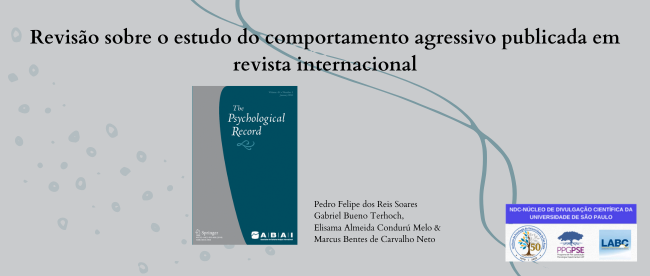Review on the study of aggressive behavior published in an american journal
Experimental models emulate the conditions of various socially relevant behaviors, allowing better control in testing treatments and understanding the causes of behavior. There are models for different behaviors, including aggressive behavior. To research what can increase and decrease this behavior, it is ethically necessary that the aggressive response is not violent. Imagine, for example, testing the side effects of a new drug that can increase aggression and, to do so, allowing two people to physically attack each other in the laboratory. It would not be responsible on the part of the researchers.
For this reason, different models have been created to evaluate behaviors that occur to harm another person, considering them aggressive behaviors. One such model is the Point Subtraction Aggression Paradigm (PSAP). In this procedure, the participant’s aggressive response consists of taking points from another person without gaining anything for it, that is, the person acts only to make another person lose points (often, these points are exchanged for money at the end of the researchs).
Since it is essential to analyze the variables of the procedure in depth to interpret its results, a review of all used versions of the PSAP was carried out and recently published in an american journal: Contingencies for Aggression in the Point Subtraction Aggression Paradigm (Soares, Terhoch, Almeida, & Carvalho Neto, 2023). PSE doctoral student and member of the Biobehavioral Analysis Laboratory Gabriel Terhoch was part of this review, together with researchers from the Federal University of Pará. The work was carried out while the student was completing his master’s degree in the program, researching aggression from a behavioral analytical perspective.
The researchers identified that there are six different versions of the PSAP. Each of them establishes different behavioral processes and should be used in different situations, according to the authors’ conclusion. Greater control and knowledge of experimental models will enable deeper knowledge of aggressive behavior and a greater possibility of reducing it when socially desirable.
The full research can be accessed via DOI: 10.1007/s40732-023-00562-0




